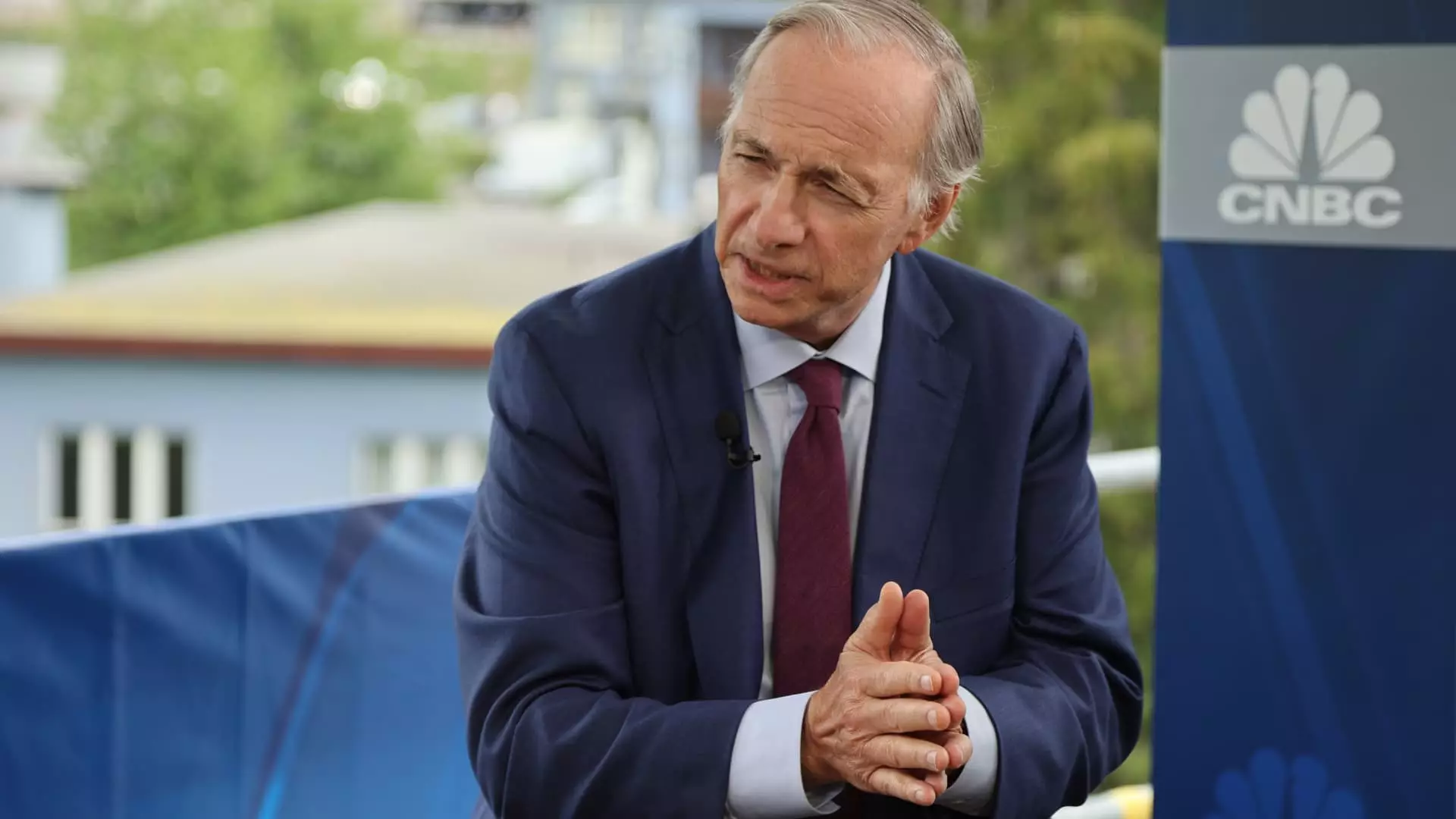Ray Dalio, a prominent investor and the founder of Bridgewater Associates, recently voiced his concerns regarding the upcoming U.S. elections scheduled for 2024, emphasizing their critical importance. He posits that these elections might represent a pivotal moment in American history—potentially the most critical of his lifetime. Dalio believes that the current political climate is charged with “irreconcilable differences” between the two major parties, hinting at deep-seated ideological divides that could prove detrimental to the nation’s democratic framework. As he articulated in a conversation with CNBC’s “Squawk Box Asia,” the nation stands at a crossroads, where the potential for an orderly transition of power has become a pressing concern, reflective of the broader instability gripping the political landscape.
The Implications of Internal Discord
Dalio’s analysis extends beyond the electoral process, framing these elections as a reflection of broader issues of “internal order and disorder” within U.S. society. The intense polarization observed on critical issues including abortion rights, immigration policies, and environmental regulations underscores a systematic failure to reach consensus. Yet, he also draws attention to a “win-at-all-cost mentality,” which he argues obstructs essential compromise—an element crucial for democracy to thrive. The pressing issues for voters, such as inflation and soaring living costs, highlight a collective yearning for effective governance. Dalio’s critique is not merely an observation; it inspires a call to action for transformative political engagement.
In this charged environment, Dalio advocates for a collective shift towards moderation. During his discussion, he expressed skepticism towards the candidates currently in contention, stating that neither of them represents the leadership style necessary for addressing the country’s needs. Instead, he emphasizes the importance of drawing moderates together to devise meaningful reforms aimed at achieving “broad-based prosperity.” This perspective echoes a growing sentiment among many voters who seek leaders capable of bridging divides rather than exacerbating them. Dalio’s assertion that a united moderate front could drive significant change refreshingly illuminates an oft-overlooked pathway amid political turmoil.
Dalio draws comparisons with other nations, particularly Singapore, to highlight the possibility of creating a society characterized by both opportunity and order. Singapore is often cited for its strategic approach to governance, which promotes education, innovation, and socio-economic stability. Delving into why such models succeed, Dalio hints that they offer a blueprint for addressing the disparities prevalent in American society. While he acknowledges the remarkable advancements made by certain sectors within the U.S., he remains cautious—pointing out that these benefits are not equitably shared across the populace. By emphasizing the importance of a cohesive strategy that combines education, innovation, and accessible opportunities, Dalio urges American leadership to learn valuable lessons from successful narratives abroad.
A Call for Collective Action
Ray Dalio’s insights serve as a poignant reminder of the stakes involved in the upcoming U.S. elections. As the nation prepares for a highly consequential electoral cycle, the emphasis placed on unity and moderate leadership may prove vital. In focusing on broad-based prosperity, the challenge for voters will be to seek candidates and initiatives that truly prioritize collective well-being over partisan victories, fostering a healthier political climate capable of addressing the deep-seated issues confronting the American populace. The onus falls on both leaders and citizens to cultivate a more inclusive democracy that can navigate the complexities of modern governance.

Leave a Reply